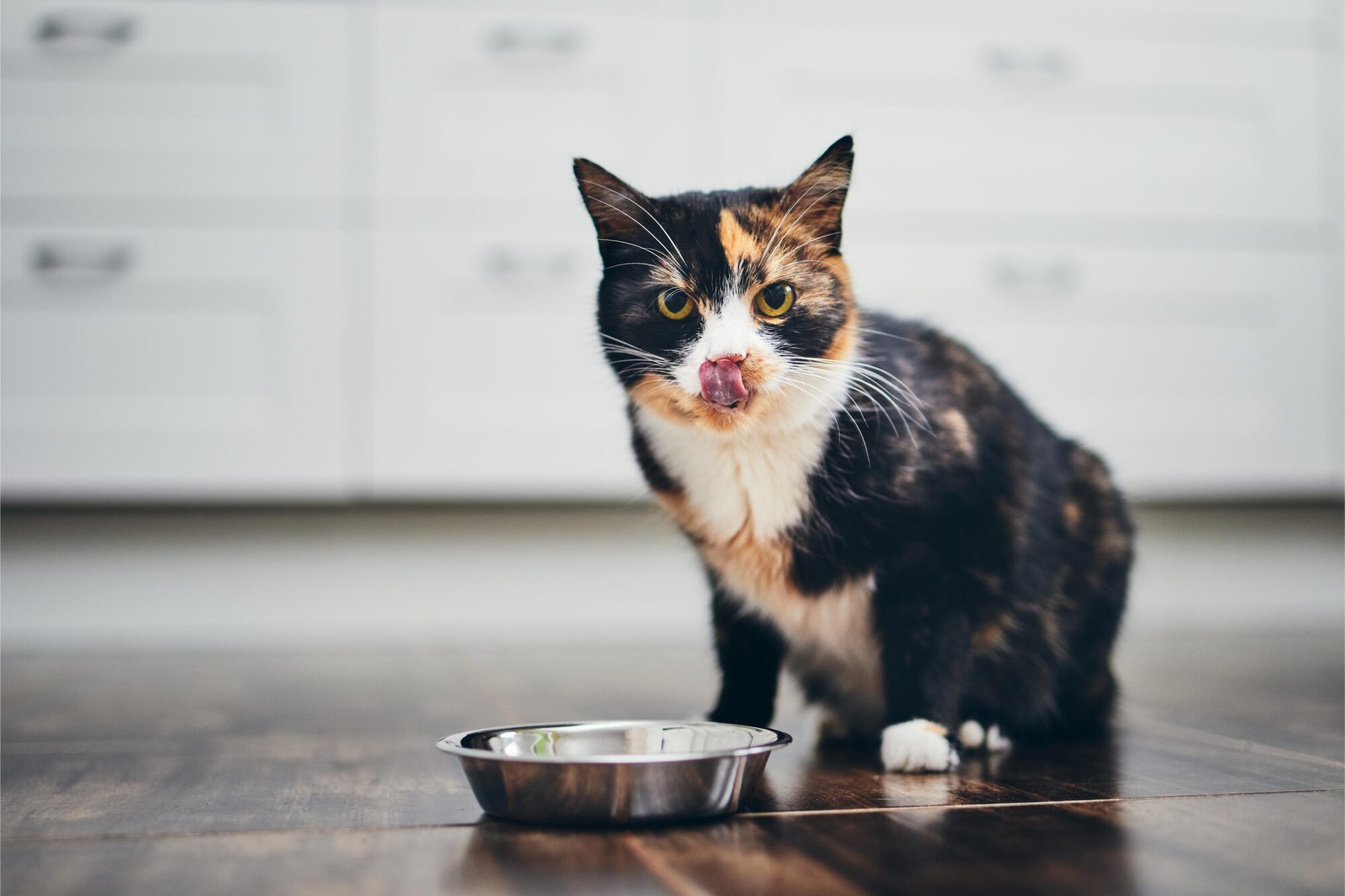Importance of Having a High-Protein Diet for Your Cat

Your feline is a food-motivated clean-plater and the picture of purrfect health, so she must be getting the nutrients she needs, right? Maybe, but maybe not. It’s what’s in the bowl to begin with that counts, and cats count on high-quality protein for optimal health and wellbeing.
At Flowers Mill Veterinary Hospital, we love helping our feline friends live their best lives, and one way we do that is by helping families choose the best diets for their pets. Keep reading for our team’s tips on meeting cat protein needs and selecting the best sources of protein for healthy cats.
Understanding Cat Protein Needs
As obligate carnivores, cats have evolved to require a diet rich in animal protein to support various bodily functions and processes.
Key reasons cats need protein:
- Protein is essential for the formation of muscles, tissues, and organs in kittens.
- Adult cats need protein for the replacement of old cells and tissues to keep their bodies active as they age.
- Protein is needed for the production of enzymes, which are crucial for digestion, metabolism, and other physiological processes.
- A protein-rich diet supports the immune system and protects cats from infections and diseases.
- While carbohydrates and fats can provide energy, protein serves as a critical energy source, especially when other nutrients are scarce.
Benefits of a High-Protein Diet for Cats
Feeding cats a high-protein diet aligns with their natural nutritional requirements and offers numerous health benefits, all of which can contribute to better health and fewer visits to the veterinarian for illnesses or injuries.
Here are the key benefits of a high-protein diet for cats:
- Enhanced muscle development, which is particularly important for active and athletic cats
- Optimal body condition, including a healthy weight and firm muscle tone
- Improved coat and skin health, which reduces the likelihood of skin conditions and excessive shedding
- Enhanced reproductive health for breeding cats
- Better digestion and nutrient absorption, which reduces the occurrence of gastrointestinal issues
Providing Adequate Protein for Healthy Cats
Choose food that lists meat, poultry, or fish as the first ingredient. Avoid foods with high amounts of fillers such as corn, wheat, and soy, as they offer little nutritional value for cats. Look for words like “complete and balanced” from reputable manufacturers.
Wet food generally contains higher levels of protein and is closer to a cat’s natural diet. It also provides hydration, which is vital for cats. Dry food can also be a good source of protein if it is high-quality and formulated for your cat’s life stage.
Regular Checkups for Optimal Health
Please contact us at (215) 752-1010 to discuss your pet’s dietary needs or if it’s time for your cat’s wellness exam. We are always happy to recommend dietary adjustments or specific foods to meet your cat’s protein needs.

